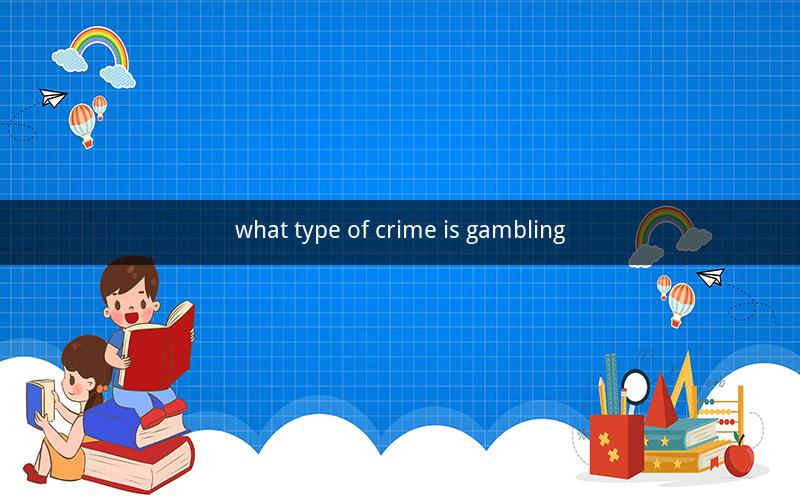
Understanding the Nature of Gambling as a Crime
Table of Contents
1. Introduction to Gambling as a Crime
2. Different Types of Gambling-Related Crimes
2.1 Illegal Gambling Operations
2.2 Fraudulent Activities in Gambling
2.3 Money Laundering in Gambling
2.4 Illegal Sports Betting
2.5 Cybercrime in Gambling
3. Legal Implications of Gambling-Related Crimes
4. The Impact of Gambling-Related Crimes on Society
5. Prevention and Combating Gambling-Related Crimes
6. Conclusion
1. Introduction to Gambling as a Crime
Gambling, while a form of entertainment for many, can take on a darker shade when it crosses the line into illegal activities. Understanding what type of crime gambling can be is crucial for addressing its consequences and combating it effectively.
2. Different Types of Gambling-Related Crimes
2.1 Illegal Gambling Operations
Illegal gambling operations refer to the conduct of gambling activities without proper licensing or permission from the relevant authorities. These operations often operate under the radar, evading taxes and regulations. They can range from small-scale street games to large-scale establishments.
2.2 Fraudulent Activities in Gambling
Fraudulent activities in gambling involve deception or misrepresentation to obtain money or property. This can include rigging games, manipulating odds, or using false identities to participate in illegal gambling activities.
2.3 Money Laundering in Gambling
Gambling can be used as a conduit for money laundering, where proceeds from illegal activities are funneled through gambling establishments to appear legitimate. This process involves placing the money into the gambling system, winning it, and then transferring it out in a seemingly legal manner.
2.4 Illegal Sports Betting
Illegal sports betting involves wagering on the outcome of sports events without authorization. It often involves organized crime groups and can lead to significant financial and ethical issues, including match-fixing and corruption.
2.5 Cybercrime in Gambling
With the advent of the internet, cybercrime in gambling has become a significant concern. This includes online fraud, hacking into gambling platforms to steal personal information or manipulate games, and the use of cryptocurrencies to facilitate illegal transactions.
3. Legal Implications of Gambling-Related Crimes
The legal implications of gambling-related crimes can be severe, depending on the nature and severity of the offense. Penalties can range from fines to imprisonment, and individuals involved in illegal gambling operations may face additional charges for conspiracy, money laundering, and fraud.
4. The Impact of Gambling-Related Crimes on Society
Gambling-related crimes have a profound impact on society, affecting individuals, families, and communities. They can lead to financial loss, addiction, and social unrest. Additionally, the proceeds from illegal gambling activities can fund other criminal activities, further exacerbating the problem.
5. Prevention and Combating Gambling-Related Crimes
Efforts to prevent and combat gambling-related crimes involve a multi-faceted approach. This includes:
- Implementing and enforcing strict gambling regulations and licensing requirements.
- Raising awareness about the risks and consequences of illegal gambling.
- Enhancing law enforcement efforts to identify and prosecute individuals involved in gambling-related crimes.
- Providing support and resources for individuals struggling with gambling addiction.
6. Conclusion
Gambling can transform from a recreational activity into a serious crime when it involves illegal operations, fraudulent activities, money laundering, illegal sports betting, or cybercrime. Understanding the various types of gambling-related crimes and their implications is essential for addressing the issue effectively and protecting individuals and society from its negative consequences.
---
Questions and Answers
1. What is the main difference between legal and illegal gambling operations?
- Legal gambling operations are licensed and regulated by the authorities, while illegal operations operate without proper authorization.
2. How can gambling be used as a tool for money laundering?
- Money laundering in gambling involves placing illegal funds into the gambling system, winning them, and then transferring them out as legitimate funds.
3. What are the potential legal consequences of participating in illegal sports betting?
- Participants in illegal sports betting can face fines and imprisonment, along with additional charges for conspiracy and fraud.
4. How does cybercrime affect the gambling industry?
- Cybercrime in gambling can lead to the theft of personal information, manipulation of games, and the use of cryptocurrencies for illegal transactions.
5. What steps can be taken to prevent gambling addiction?
- Prevention strategies include raising awareness, providing support for those struggling with addiction, and implementing responsible gambling practices.
6. How can governments enforce gambling regulations effectively?
- Governments can enforce regulations through licensing requirements, inspections, and collaboration with law enforcement agencies.
7. What role do law enforcement agencies play in combating gambling-related crimes?
- Law enforcement agencies investigate and prosecute individuals involved in gambling-related crimes, ensuring compliance with gambling regulations.
8. How does illegal gambling affect the economy?
- Illegal gambling can lead to financial loss, tax evasion, and the funding of other criminal activities, negatively impacting the economy.
9. What resources are available for individuals struggling with gambling addiction?
- Resources include counseling services, support groups, and helplines dedicated to helping individuals overcome gambling addiction.
10. How can society address the societal impact of gambling-related crimes?
- Society can address the impact through education, awareness campaigns, and providing support services to individuals and communities affected by gambling-related crimes.